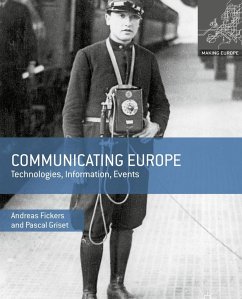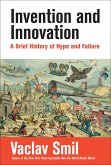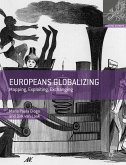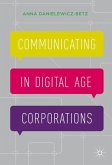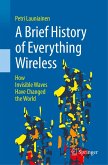Since the early years of telegraphy, modernity at large generated and has depended upon technologies of electrical/electronic communication and information circulation: from telephone, radio, and television to the internet. This volume reveals these connecting technologies' geopolitical importance and their crucial relationships with culture, commerce, and communities. Also the authors critically examine their spatial dimensions and transnational implications - as material objects with particular qualities, as elements in institutional complexes, and as 'vehicles' carrying complex symbolic meanings. Through in-depth assessments of critical, as well as mundane, events in the history of communications and information, these analyses will significantly alter conventional perspectives both on communications and on modern European history.
"The volume is intended equally for media students and media scholars. Its approach unites a general historical overview with a detailed description of relevant events and documents." (Marija Weste, Historical Journal of Film, Radio and Television, Vol. 42 (1), 2022)
"The authors offer an expansive and detailed narrative, as well as an extensive bibliography and index, a compendium of relevant acronyms, and a huge array of maps and illustrations. ... The examples are voluminous, covering many different communication technologies, regulations, and platforms. The work affords deep attention to nation-states, individual inventors, private enterprise, financiers, and users. ... the authors offer something more valuable than an encyclopedia ... ." (James Schwoch, Technology and Culture, Vol. 63 (1), January, 2022)
"This book takes an expansive view at technologies from the telegraph to the Internet across Europe. ... Fickers and Griset have written a tremendouslyuseful overview text that is accessible and helpful both to newcomers and experts in the field." (Heidi Tworek, H-Soz-Kult, hsozkult.de, June 22, 2021)
"The authors offer an expansive and detailed narrative, as well as an extensive bibliography and index, a compendium of relevant acronyms, and a huge array of maps and illustrations. ... The examples are voluminous, covering many different communication technologies, regulations, and platforms. The work affords deep attention to nation-states, individual inventors, private enterprise, financiers, and users. ... the authors offer something more valuable than an encyclopedia ... ." (James Schwoch, Technology and Culture, Vol. 63 (1), January, 2022)
"This book takes an expansive view at technologies from the telegraph to the Internet across Europe. ... Fickers and Griset have written a tremendouslyuseful overview text that is accessible and helpful both to newcomers and experts in the field." (Heidi Tworek, H-Soz-Kult, hsozkult.de, June 22, 2021)

